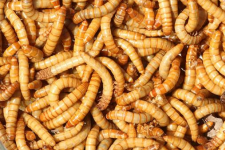Gastro cat: Assessment of a new high protein – low carbohydrate diet in cats with chronic gastrointestinal disease

Introduction
Forty six client-owned cats with chronic GI disease were followed up for 2 months. During the first month (M1), after a 4-day diet transition, they were fed exclusively the tested diet (Table 1). During the second month (M2), they were fed again their usual dry diet.
Animals, materials and methods
No medical management was allowed during the study. To describe the clinical improvement, 5 digestive parameters were assessed 6 times: at inclusion, then each week of M1, and finally at the end of M2 (Table 2). Wilcoxon sign rank tests were used for statistical analyses, with a significant threshold of 5%.


Results
 The tested diet resulted in significant improvements as attested by comparison of % cats with normal digestive parameters at the different times of the study (Table 3). The mean frequency of defecation and the mean faecal score significantly improved between inclusion and M1 (p<0.0001), and then degraded between the end of M1 and M2 with the usual diet (p<0.0001) (Figures 1 & 2). The improvement was significant within the first week for the 2 parameters (p<0.0001). After 1 month fed the tested diet, 72% cats were completely cured (all parameters normal), 26% were partially improved, and only 2% were unchanged.
The tested diet resulted in significant improvements as attested by comparison of % cats with normal digestive parameters at the different times of the study (Table 3). The mean frequency of defecation and the mean faecal score significantly improved between inclusion and M1 (p<0.0001), and then degraded between the end of M1 and M2 with the usual diet (p<0.0001) (Figures 1 & 2). The improvement was significant within the first week for the 2 parameters (p<0.0001). After 1 month fed the tested diet, 72% cats were completely cured (all parameters normal), 26% were partially improved, and only 2% were unchanged.



